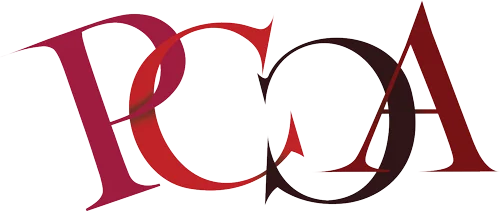by Dorothee C. von Tippelskirch-Eissing
Since our last Newsletter from August 2017, several events have taken place that are important for PCCA. First, we had our annual meeting of the board of PCCA.
The specialty in this meeting was related to the fact that this meeting took place ten years after the founding of PCCA as an organisation (2007 in Berlin), of course the conferences having had a much longer history, beginning in 1994. For the first time, we met in Jerusalem, as some of us wished to attend the celebrations of 30 years of OFEK, our Israeli partner organisation which took place just a few days after our meeting. And, most importantly, it was a meeting after a significant transition: we met for the first time in the new composition of our board, which proved to be very fruitful for our work, thinking, conceptualising and for the planning of our next steps ahead.
One of the most important next steps is definitely the 2018 conference, which we discussed at length together with the Conference Director Louisa D. Brunner. The conference will take place in the Netherlands, August 30th – Sept. 3rd 2018 under the title:
Exclusion, Resentment and the Return of the Repressed. Europe in a Globalized World.
Another important topic has been the thinking about a possible project in the future dealing with the work with Palestinians. This project is being pursued by Fakhry Davids and Veronika Grueneisen, the former chair and founding member of PCCA.
Other projects have been mentioned, and we will inform you about further steps regarding these in the future.
Of course we also dealt with our organisation and structure of PCCA, discussing for example, the development of a network of Supporters of PCCA, a work coordinated by the chair of PCCA, Ekkehard Raehmer and Bettina Jesberg. We worked on the development of our new logo with the help of Daphna Orner.
And, very importantly, our new colleagues took up their specific roles and tasks: Nadine Tchelebi has joined Karin Lueders as co-editor of the newsletter. Christoph Freytag has been elected as the new treasurer of PCCA, he joins Mira Erlich-Ginor and Dorothee von Tippelskirch-Eissing in the Management Committee of PCCA. Thus, Louisa Brunner found a follower and could leave the role after 10 years.
For more detailed information, we would like you to take a look at the report of our annual meeting, written by Christoph Freytag together with the chairperson.
It has been a year to look back on, in order to think about the future.
Especially Mira Erlich-Ginor had been involved in a lot of the organisation and some of us have been involved in different roles in the celebration of 30 years of OFEK in Israel.
And some of us have been involved in the celebration of 70 years of the Tavistock Institute in London.
To both events you will find echoes in the Newsletter.
And it has as well been a year where we had to deal with painful losses. In our last Newsletter, we honoured our colleague Adib Jarrar.
In July 2017, we lost our colleague and member of the Advisory Board Ross Lazar, a dear fried to some of us.
Ross had worked with us in the conference in Kliczków in 2014, after having been interested in the work of PCCA over many years. Indirectly, he had been connected with and involved in our work in many ways before. Our cooperation had been especially fruitful so that we asked him afterwards to become a member in our advisory board, which he accepted. We are sad that this cooperation has found an early end.
For the ceremony in his German hometown he, who had also thought about a career as a musician, as a singer, had chosen to include in the musical program an Aria of Jean Sebastian Bach “Ich habe genug” and the song by Frank Sinatra: “I did it my way”. We miss “his way” in and with PCCA, and we are grateful for what he has given to us generously, whole-heartedly.
We invite you to register for our upcoming conference in the Netherlands, and we will be happy to see you there for a new experience of learning about our societal reality and conflicts in Europe as part of a globalized world.
